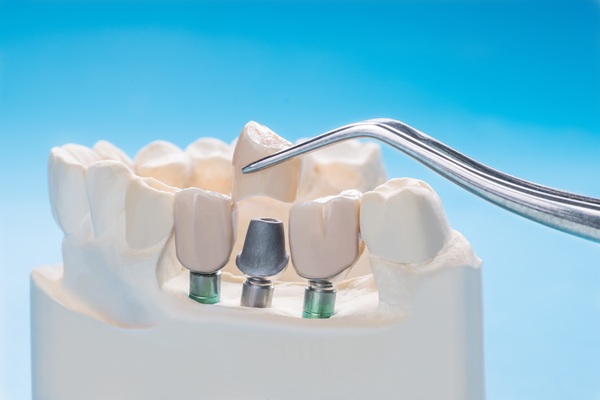 For many people, dental implants are life-changing, as they drastically improve the appearance of the smile and increase overall comfort and function. That said, the process of installing implants is invasive, requiring several surgeries. As with any surgery, proper care post-implantation is key to preventing infection and ensuring the procedure’s success.
For many people, dental implants are life-changing, as they drastically improve the appearance of the smile and increase overall comfort and function. That said, the process of installing implants is invasive, requiring several surgeries. As with any surgery, proper care post-implantation is key to preventing infection and ensuring the procedure’s success.
Reducing risk of infection following dental implants surgery
Any area of the body that undergoes surgery becomes exposed for a while and takes time to heal, meaning it can become a breeding ground for bacteria. The good news is that the risk of infection after dental implant surgery is relatively low, and even treating infection can be easy if a patient sees a dentist after developing warning signs. Symptoms of infection include the following:
- Red or swollen gums at the site of the implant
- Loose or wobbly implants
- Pus emanating from the area of the implant
- Bad breath or a bad taste in the mouth
- Dull ache or throbbing pain
- Fever
- Visible threads
- Bleeding when brushing around the implant
All of these symptoms can typically be avoided with proper care post-implant surgery.
Good oral hygiene
A robust oral hygiene routine is a recommended way to prevent an infection from occurring after dental implant surgery. An implant patient’s oral hygiene routine should consist of gently brushing twice a day as normal. Regular brushing helps to prevent the buildup of infection-causing bacteria.
In addition to brushing, patients should also floss regularly. Flossing helps to remove the food particles that a toothbrush cannot reach and ensures that the gums and teeth have a healthy environment in which they can thrive.
Rinse regularly
An essential aspect of the dental implant healing process is rinsing. Patients are advised to rinse the mouth once or twice a day with a dentist-approved mouthwash or a saltwater solution. When the wound is healing, it is much more prone to infection from stubborn bacteria. Rinsing helps to control bacteria buildup and, subsequently, reduce the risk of infection.
Avoid smoking
Smoking not only invites a ton of bacteria into the mouth but also jeopardizes the body’s ability to heal properly. As a result, it is one of the worst things a patient can do post-implant surgery. Dentists advise patients to avoid smoking both prior to and following surgery.
Avoid foods and beverages high in sugar
Sugar is bad for the gums at any time, but it is especially damaging to gums that are in the healing process. At least while the implants heal, patients should avoid foods and beverages that contain a lot of sugar, as it can cause excess bacteria buildup. Sugar particles are also extremely small and can hide in the deepest crevices of the mouth, including within the site of the surgery.
Check out what others are saying about our dental services on Yelp: Dental Implants in Roswell, GA.
Conclusion
Dental implants have the potential to last a lifetime, but only if the initial implantation succeeds. If you want your procedure to be a success, talk to a dentist about ways to care for the implants immediately following the surgery and long into the future.
Request an appointment or call Roswell Dental Smiles at 770-238-1209 for an appointment in our Roswell office.
Recent Posts
There has been a lot of talk about dental implants in recent years. Dentists recommend them, and patients benefit from the results of the treatment. Implants restore the full function of the mouth and revitalize smiles. People can enjoy newfound self-esteem and the self-image and health they have been looking for. You may wonder whether…
A consistent oral hygiene routine is necessary for anyone who has dental implants. While tooth decay cannot affect implants themselves, the area still requires routine cleaning to prevent gum disease and even infection. Failure to do so can also cause staining of the prosthetic tooth and an unsightly appearance. If the tissues surrounding the implant…
One of the leading tooth replacement choices dentists and patients are opting for is dental implants. When it comes to tooth replacement, evaluating the different options can sometimes seem overwhelming. However, with dental technology becoming more advanced and available for people with one or more missing teeth, there is an option for almost everyone. This…


